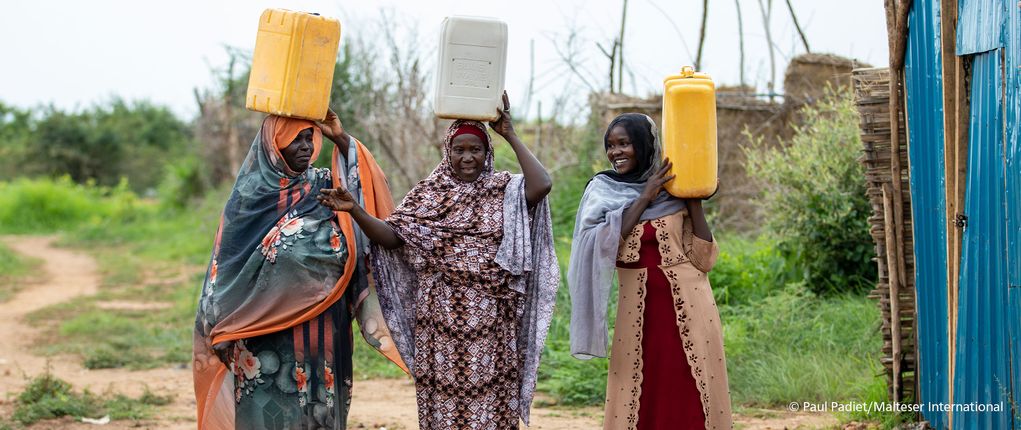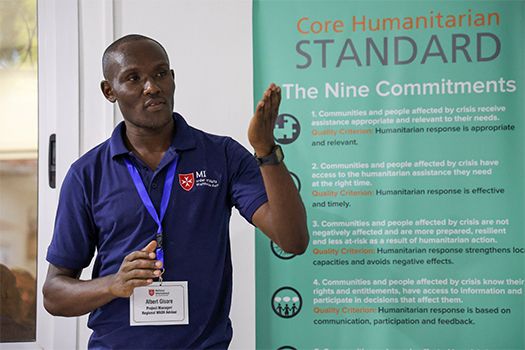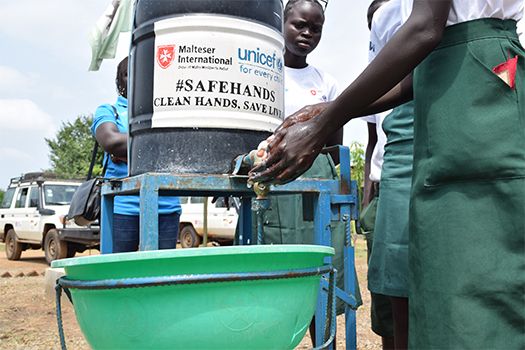
WASH strengthens health
An interview with our WASH expert Albert Gisore
Providing people with safe access to water sources, sanitation facilities, and hygiene, and improving the long-term livelihoods of households in need is the primary goal of our WASH projects. This lays the foundation for a healthy life.
Albert Gisore is our Regional WASH Advisor in South Sudan. In this interview, he uses our work on the ground as an example to explain how important it is to provide people with adequate WASH services.

Hello Albert, why do you think it is so important to keep an eye on the WASH sector in South Sudan right now?
Albert Gisore: Access to water, sanitation, and hygiene is fundamental to the health of the population. In South Sudan, conflicts, floods, and the collapse of infrastructure have severely compromised these fundamentals. Without clean water and sanitation, the risk of diseases such as diarrhea, which particularly affect children, increases. WASH must be a priority in order to prevent acute crises and build resilience.
What specific challenges do you currently see in South Sudan?
Albert Gisore: The main problems include interrupted water supplies, contaminated drinking water, inadequate sanitation facilities in schools and health centers, and a lack of hygiene programs in communities. In addition, seasonal flooding and limited financial resources make it difficult to maintain existing systems and develop new solutions.

What does our support in the area of WASH in South Sudan look like in concrete terms?
Albert Gisore: We have implemented several concrete measures to improve access to water and sanitation facilities:
- Construction of latrines: In order to reduce the spread of diseases such as cholera, especially among children, 76 latrines were built in 2024.
- Fair water supply: In cooperation with local communities, water supply systems have been set up. This enables community members to save on the cost of purchasing drinking water. Last year, we built or renovated a total of 404 wells and installed hand washing stations and sanitary facilities.
- Hygiene training: Training courses have been conducted to raise awareness of the importance of hygiene.
- Public sanitation facilities: Public sanitation facilities have been built in public places, schools, and health facilities.
- Solar-powered lighting systems: Solar-powered lighting systems have been installed in public sanitation facilities to ensure the safety of girls and women.
- Training of multipliers: 15,000 people have been trained as multipliers for proper hygiene practices.
These measures aim to improve the general health of the population in South Sudan and reduce the risk of waterborne diseases.
What can donors and partners do to strengthen WASH work in South Sudan?
Albert Gisore: Support long-term projects, invest in infrastructure and local capacities. Donations for wells, latrines, hand hygiene training, and emergency preparedness help alleviate acute crises and create sustainable systems.








